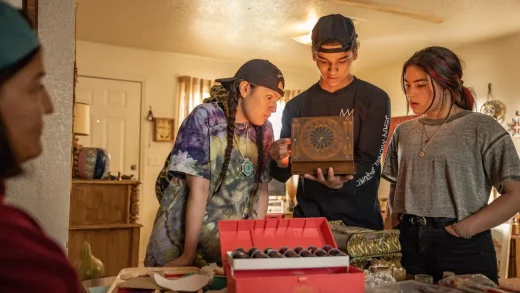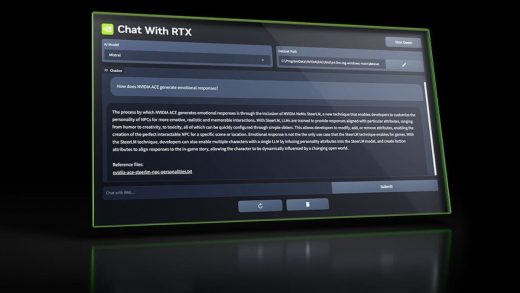:format(webp)/https://www.thestar.com/content/dam/thestar/entertainment/music/2022/12/25/former-promoter-john-brower-talks-about-how-easy-it-was-to-bring-led-zeppelin-the-doors-and-others-to-toronto/jb_001.jpg)
Trivia question: When British hard rockers Led Zeppelin made their Toronto debut at the Rockpile on Feb. 2, 1969, how many fans were in attendance?
1,200? 600?
John Brower has the answer — and he should know, because he promoted the show.
“I don’t think we sold more than 20 tickets,” said Brower, one of Toronto’s first rock music impresarios as co-owner of the Rockpile, a club in the Masonic Temple on Yonge at Davenport in the late ’60s.
“There were more people working at the Rockpile than there were buying tickets. But they put on a show as if they were in an arena or a football stadium,” he said over the phone from his home in Venice, Calif., recently.
Brower is responsible for a number of impressive rock acts making their Toronto debuts — the Doors, the Who, the Jeff Beck Group (including Rod Stewart on vocals), Frank Zappa, Procol Harum and Jimi Hendrix (at the CNE Coliseum) — but perhaps his greatest musical legacy is the number of festivals he presented. There were two 1969 Varsity Stadium music festivals — the Toronto Pop Festival and Rock and Roll Revival (the latter resurrecting his influential name in the just-released documentary “Revival 69”), where he pulled off the miracle of securing then-Beatle John Lennon as a last-minute headliner — Strawberry Fields at Mosport Park and the new wave-oriented Heatwave, also held at Mosport.
But he started with clubs and, despite the meagre attendance figures of that initial Zeppelin gig, when singer Robert Plant, ex-Yardbirds guitarist Jimmy Page, bass player John Paul Jones and drummer John Bonham returned six months later, well on their way to establishing their 300 million-album-sales career, it was a much different story.
“They came back the day after Woodstock ended and played two sold-out shows. In just a few months, they exploded,” Brower said.
But Brower wasn’t at the latter set of shows, partially due to travelling back from the Woodstock Festival and to personally avoiding the band’s notorious manager, Peter Grant, due to a previous confrontation.
“In 1968, he was the tour manager for Jeff Beck,” Brower recalled. “Beck sold out two shows and didn’t show up for the first one and, in those days, we paid the agent for the first show and then paid the tour manager for the second. Peter showed up just before the second show and demanded the money, but we had to refund the first show. So he said, ‘We’re not going to play unless we get the money.’”
Brower said he capitulated to Grant’s demands, but not before the club owner’s partner, Doug McQuigge, sought a remedy of his own.
“By the time the show ended, there were four police officers, two immigration officers and two customs officers there waiting in the venue, and they announced to Peter Grant that the band is being taken to their hotel; that there will be a police presence in the hallway; that they’re not to leave the hotel and that they’re going to court tomorrow charged with extortion and attempt by conversion.”
Describing Grant — who died in 1995 — as “a six-foot-five-inch, 350-pound notorious thug,” Brower said the manager didn’t take too kindly to the incident, grabbing one of the police officers and lifting him in the air “by the scruff of the neck” and stating that “nobody’s taking our equipment.” A gun barrel suddenly poking into the side of his ribs convinced Grant to release his grip, and he and the band were quarantined to the hotel for the evening.
After a flurry of phone calls between lawyers and agents, a deal was struck for Grant to return the money to Brower at the Rockpile in exchange for dropped charges and the ability for Beck to make his gig the following evening in Detroit.
But even Grant’s acquiescence didn’t go smoothly.
“Peter Grant comes over and I’m standing on the top of the marble stairs at the Rockpile,” Brower recalled. “He whipped that door open, saw me standing at the top of the stairs, took his wad of money that was wrapped in a plastic band and fired it at me, hitting me on the side of the head. It knocked me down and the money burst in an explosion, flying all over the place. I was sitting on my ass covered in money and I just looked at him and said, ‘Get the eff out of my club!’
“That was the last time that I saw him, because when he came back with Led Zeppelin, I studiously did not come to the club. Then when he came back with Led Zeppelin as heroes in August, I was just on my way back from Woodstock and we missed seeing them at the Rockpile.”
Brower, who lived in Rosedale and attended Upper Canada College, cut his musical teeth as the bass player for the Diplomats, a band that played the Toronto club circuit in the mid-’60s. One of its two lead singers — Bob McBride — would go on to front Lighthouse during that band’s ’70s heyday, while the other, Peter McGraw, later fronted the Paul Butterfield Blues Band.
“We were on the same circuit as Jon and Lee & the Checkmates, Roy Kenner, the Mandala — who were actually known as the Rogue at the time — and we played Yorkville in places like the Devil’s Den and at the Pepsi Under 21 Club at the CNE, all kinds of places.”
Brower also assumed duties for booking gigs for his band.
“I’d go to the church and get the basement rented; go to whoever booked these various places … it was not a difficult step to bring the Doors to Toronto; it was just a bigger scale, the same thing I had kind of done for my high school band.”
Before the Doors’ April 20, 1968 appearance came along, Brower had married Michele Finney, co-host of the CBC TV show “Razzle Dazzle,” and had been residing in California for a few years, “living the rock ’n’ roll life, going to (L.A. clubs) the Whisky (a Go Go); going to the Troubadour; going to all these places.
“We came back to Toronto and, no offence, but it was very quiet,” Brower said. “There was folk music in Yorkville, sure, but Toronto had really become the sort of folk capital.”
Brower said he was looking for something to do when he “hustled up” some money with an Upper Canada chum and began working the phones to find the Doors’ booking agency.
“We literally went through agents alphabetically on the phone starting with ‘A’ in New York. The second agency, a guy picks up the phone and says, ‘I’m Richard Ouellette, who’s this?’ I said, ‘It’s John Brower, I want to bring the Doors to Toronto. And he said, ‘OK, it’s $10,000 against 50 per cent. How fast can you have $5,000 down here and what date do you want?’
“It was just that simple. As (Alice Cooper manager) Shep Gordon says in ‘Revival 69,’ it wasn’t corporate rock.”
The next act Brower booked was Jimi Hendrix, in partnership with Detroit promoter Russ Gibb.
“Then I came up with the concept of the Rockpile at Fran’s Restaurant one night because we were all reading about the Fillmore (the influential Fillmore East and the Fillmore West venues were owned by San Francisco promoter Bill Graham). Just a set of circumstances, you know?
“Rick Taylor’s girlfriend’s father was the head of the Masonic Temple. Doug McQuigge had a father who put up the money. The next thing you know we had the Masonic Temple and we were sitting on the phone calling agents to book bands. Blood, Sweat and Tears were available — David (Clayton-Thomas) I had known from the rock scene in Toronto — and that was it, we were off and running.”
But Brower’s interest in being a club owner didn’t last.
“I left the Rockpile after about a year when I decided that it was too routine,” he said. “I need new horizons. I lose interest in things very quickly. Also, I had married somebody and we wanted to get back to California. We had a child. I had a different life.”
Brower then launched into presenting festivals, the first being the two-day Toronto Pop Festival held in June 1969 that included 28 acts (the Velvet Underground, Sly & the Family Stone, the Band, Steppenwolf, Tiny Tim and Robert Charlebois among them) and “was extremely successful financially”; the aforementioned Rock and Roll Revival; the three-day Strawberry Fields Festival in August 1970 (Jethro Tull, Grand Funk Railroad, Procol Harum, Melanie and others) and the 1980 one-day Heatwave (Talking Heads, Elvis Costello & the Attractions, the Pretenders, Teenage Head, the B-52s and more).
“David Byrne was quoted as saying, ‘We would never play a rock festival,’” Brower noted. “‘And we heard about this crazy guy in Toronto who was willing to give us more money than we had made in the entire previous year to play one show. Hey, we’ll take the money!’”
Brower said he’s in the midst of writing “The Heatwave Trilogy,” a series of books about the experience that saw “Book One: Count Wiffenstein Meets the Ugly Canadians” published in 2014.
“There’s always chaos,” he said about the theme of the first book. “These things are not a cakewalk.”
That was proved in 1969 when Brower tried to stage a Peace Festival with John Lennon. At that point, his partners, Ken Walker and Thor Eaton, had decided to move on without him.
“I also spent some time with John Lennon on the way back from Istanbul in November of that year,” Brower recalled. “I told him I was at Woodstock and I’d like to do a big festival next summer and Yoko said, ‘How about for peace?’
“That began the discussion of the Toronto Peace Festival. We brought John back to Toronto in December. He had a press conference, met Prime Minister Trudeau and then his life took a downward spiral. We did ‘The War Is Over’ campaign with him in Toronto: it was like a Nike campaign. You woke up one morning and there were huge billboards all over downtown Toronto.”
But then Lennon changed, Brower said.
“Lennon had taken a 180-degree turn after being in Denmark, getting his hair cut off, and telling me prime ministers were over and peace was over. And I was like, ‘No! No! Wait a minute: two months ago we had a press conference! You had long hair! Now who are you?’”
Aside from his current writing and attempts to launch film and TV projects, Brower is immersed in the art world as an online gallerist, curating the rights to an album cover created by Jean-Michel Basquiat for an obscure punk band called the Offs.
But his greatest satisfaction is more personal: although his first marriage didn’t survive, he’s the proud father of a 53-year-old daughter and, through another marriage, became a stepfather to two more daughters, aged 24 and 27.
“Parenting and looking after animals is the great joy of my life, “ said Brower. “That is what I aspire to achieve a high water mark in. I have dogs, squirrels, possums and blackbirds that daily look for food here in Venice because I love to see animals. I’d be happy living in the woods, but there’s not much of an economy of scale out there.”
JOIN THE CONVERSATION


